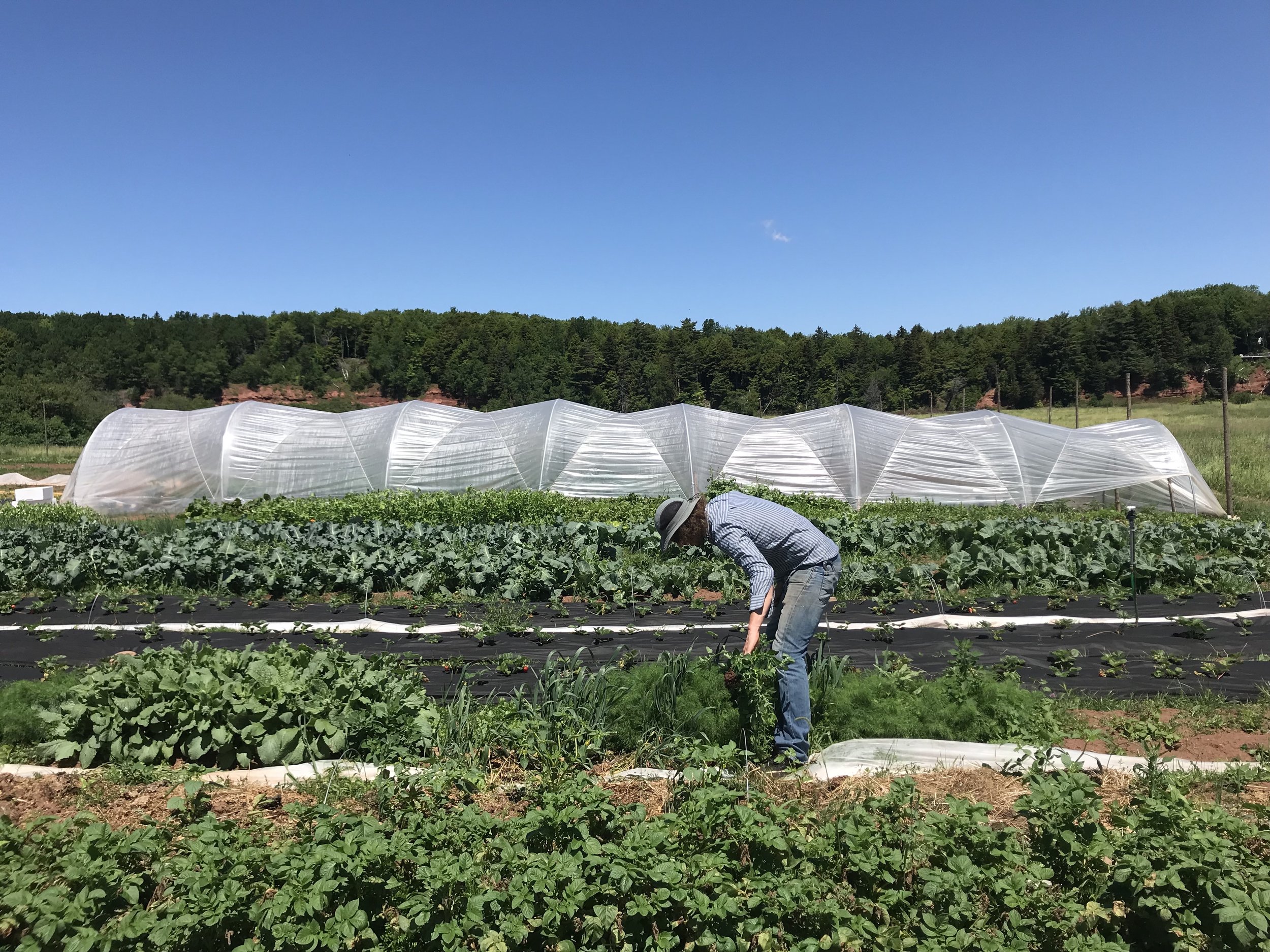Growing Practices
How we are caring for the land

We follow regenerative farming practices so that we can provide you with nutritious, delicious locally grown heritage produce, whilst caring for and loving the land.
To do this we adhere to the following principles:
We feed the soil, not the plant
We use biochar, which is rich in carbon, to feed soil microorganisms, which in turn support healthy disease-free plants. These plants taste better and have more nutrients.
We till as little as possible
The soil contains an intricate web of life that, once disturbed, loses its ability to retain water and nutrients, and grow healthy plants. We respect this by incorporating our amendments with hand tools, not mechanical tillers.
We use size appropriate technology
Heavy machinery destroys soil structure, pollutes the environment, and reduces the farmer’s connection with the soil. We use predominantly hand powered equipment. That means we’re in direct contact with the soil each day, we do not pollute the environment, and we are fitter and healthier for it!
We do not use any chemical or synthetic fertilizers or pesticides
We produce healthy and delicious produce using only natural fertilizers: seaweed, compost, and biochar. The name of our farm (Holdfast) acknowledges this: seaweed use a ‘holdfast’ to attach themselves to rocks on the ocean floor.
If pests strike and we need to control them, we use natural alternatives, such as rhubarb leaf tea or mixtures of cayenne and garlic, to make our crops unpalatable/undesirable to pests—it is surprisingly effective!
We do not aim to completely eliminate pests—if we did, we would lose our team of beneficial insects! When pests strike, these beneficials, such as soldier beetles, ladybugs and predatory wasps, quickly multiply to take down pests before we need to.
We create refuges for these beneficial insects throughout our farm, increasing biodiversity whilst reducing our need to ‘control’ pests.
We use only organic mulches, and place beds in cover crops whenever possible
Organic mulches cover the soil and dramatically improve its quality. They provide carbon and food for microorganisms and worms, who mix this organic matter into the soil, enriching it and improving its structure. Our practice of interplanting and rotating cover crops protects the soil, sequesters carbon, and increases soil nutrient levels, as well as improving biodiversity.
We are working towards becoming carbon negative and reducing pollution
We are working towards creating biochar onsite from invasive species such as Japanese knotweed. This year, we aim to sequester 2 tons of carbon permanently in our soil by using this natural fertilizer. Cover cropping also adds another couple of tons of carbon into the soil each season.
To reduce our use of plastics, we use ‘soil blocks’ instead of plastic trays to start our transplants. When we must use bags (such as for our salad mix), we aim to use paper or biodegradable plastics—we also encourage you to re-use them!